50+ Sample Behavior Contract Templates
-
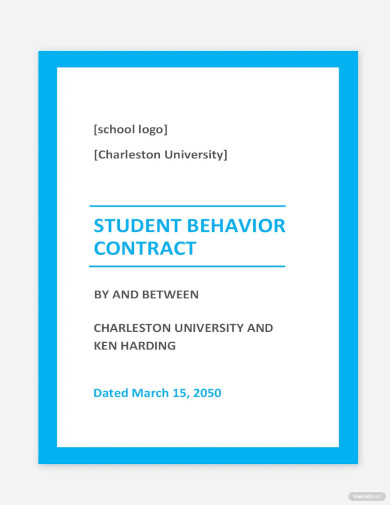
Student Behavior Contract Template
download now -
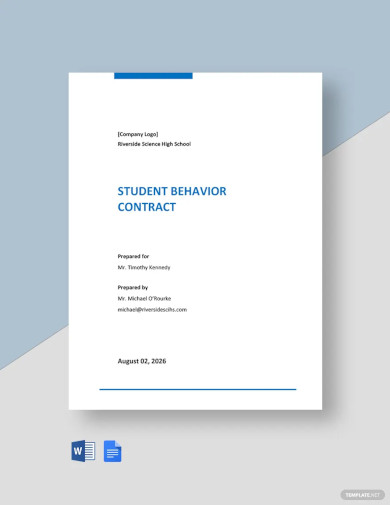
Free Student Behavior Contract Template
download now -
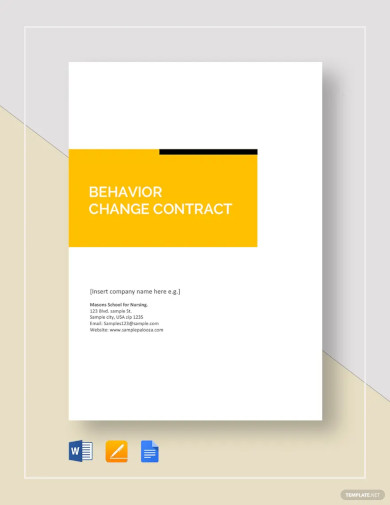
Behavior Change Contract Template
download now -
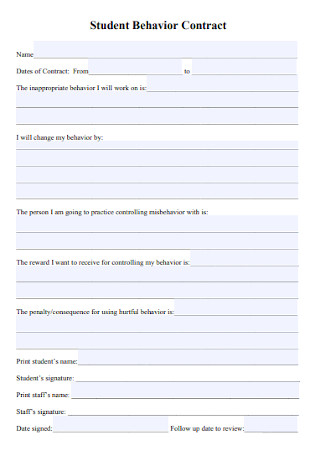
Student Behavior Contract
download now -
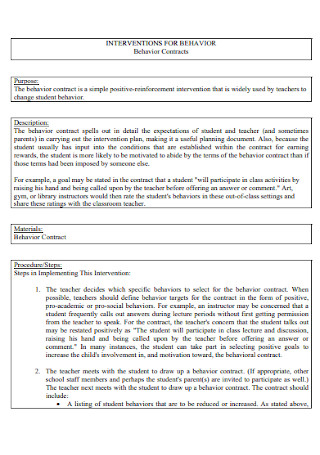
Intervention Behavior Contract
download now -
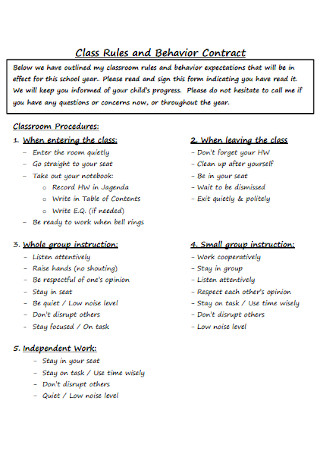
Class Rules and Behavior Contract
download now -
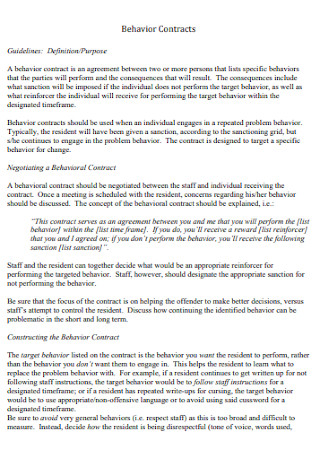
Sample Behavior Contracts Template
download now -
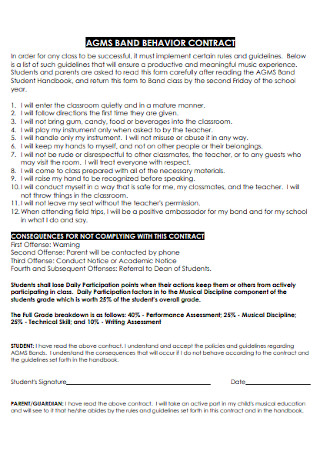
Sample Band Behavior Contract
download now -
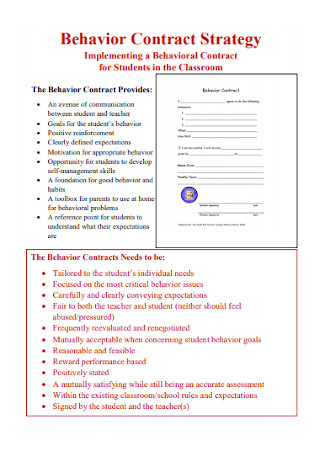
Behavior Contract Strategy Template
download now -
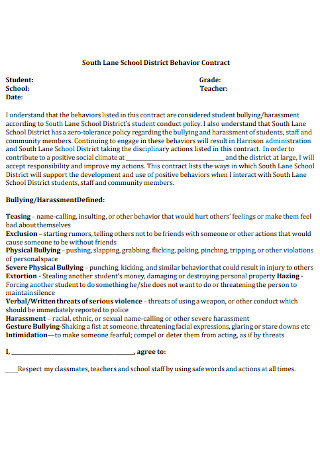
School District Behavior Contract
download now -
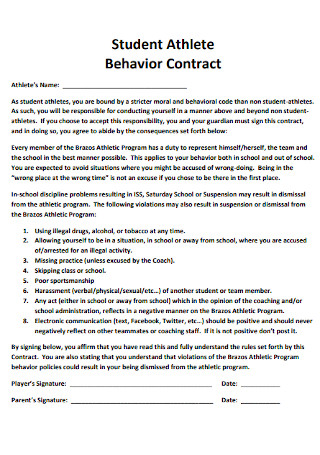
Student Athlete Behavior Contract
download now -
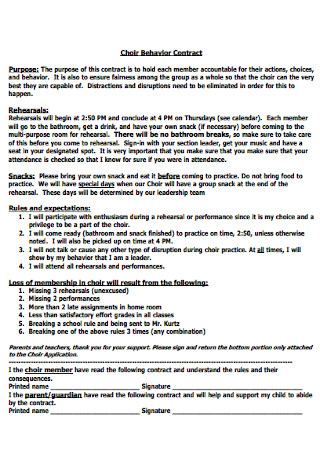
Choir Behavior Contract
download now -
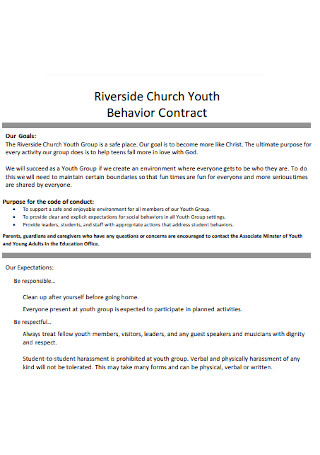
Youth Behavior Contract Template
download now -
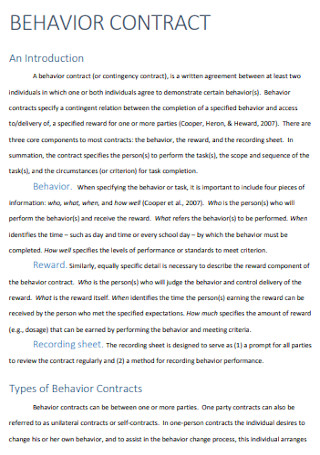
Basic Behavior Contract Template
download now -
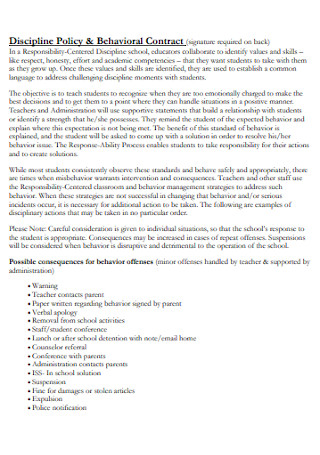
Behavior Contract and Policy Template
download now -
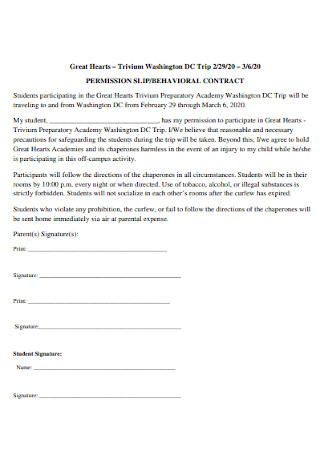
Behavior Permission Contract
download now -
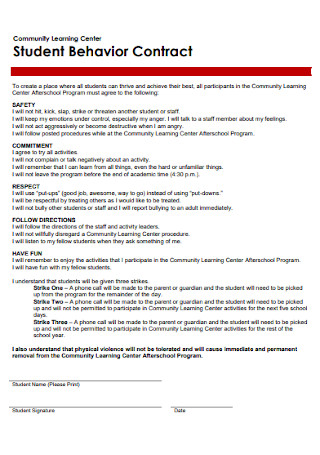
Sample Student Behavior Contract
download now -
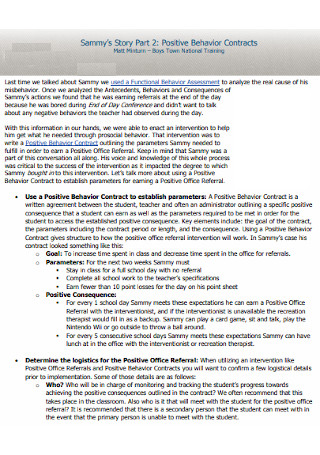
Positive Behavior Contracts
download now -
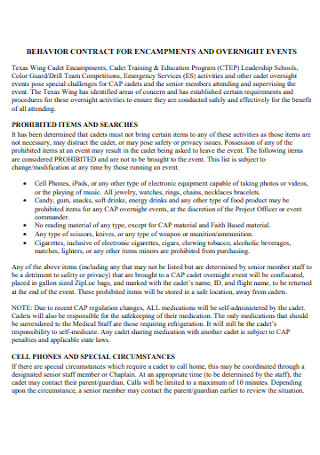
Behavior Contract for Overnight Events
download now -
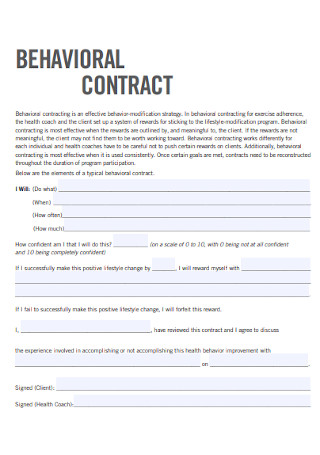
Simple Behavior Contract Template
download now -
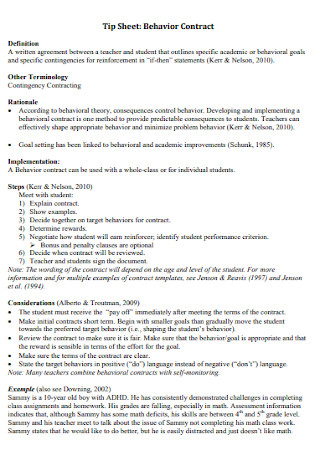
Behavior Contract Sheet Template
download now -
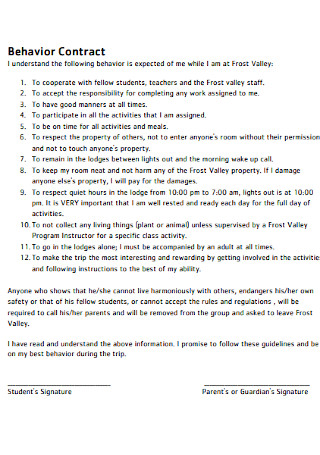
School Trip Behavior Contract
download now -
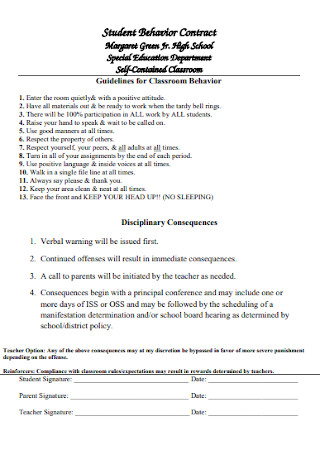
Student Behavior Contract Example
download now -
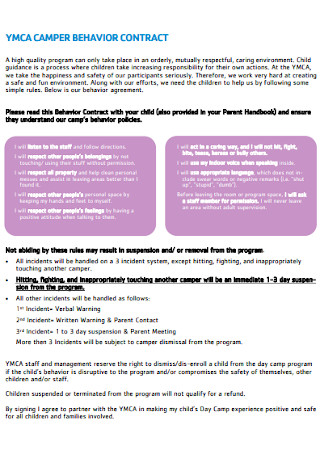
Sample Camper Behavior Contract
download now -
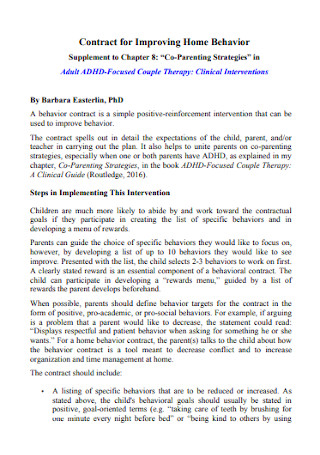
Contract for Home Behavior Template
download now -
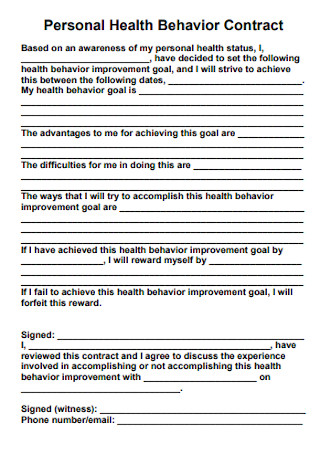
Personal Health Behavior Contract
download now -
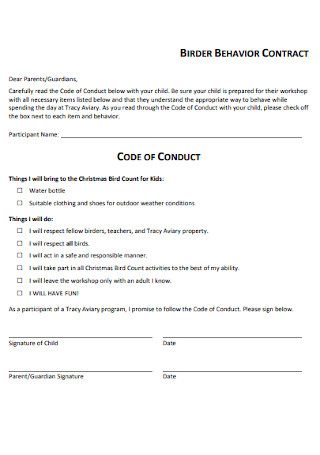
Brider Behavior Contract
download now -
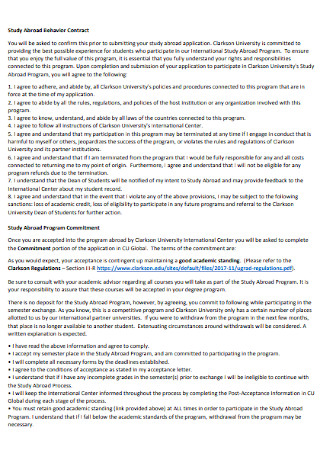
Study Abroad Behavior Contract
download now -
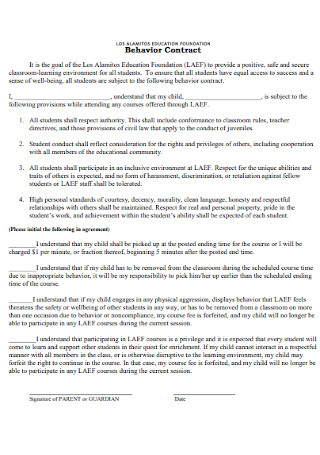
Foundation Behavior Contract
download now -
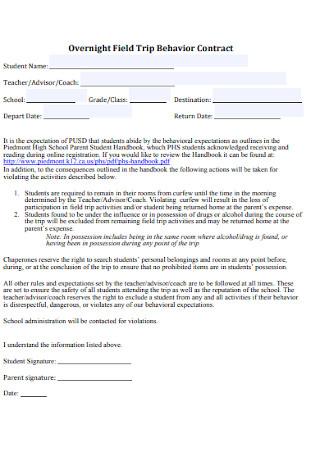
Sample Overnight Field Trip Behavior Contract
download now -
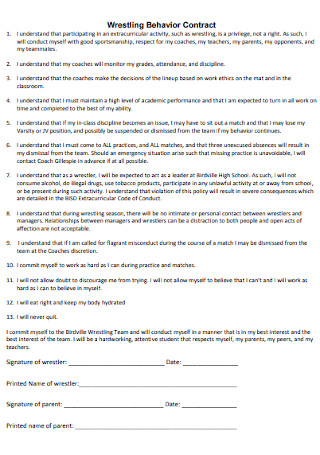
Wrestling Behavior Contract
download now -
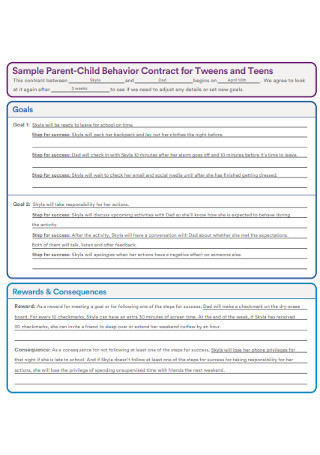
Sample Parent-Child Behavior Contract
download now -
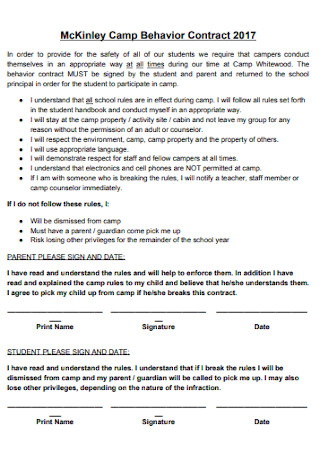
Camp Behavior Contract
download now -
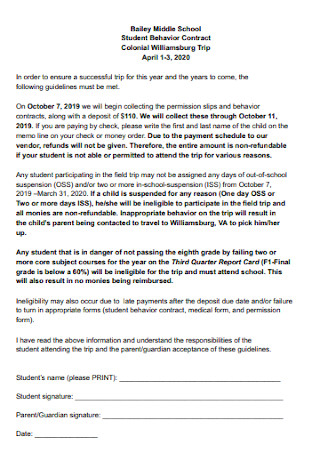
School Student Behavior Contract
download now -
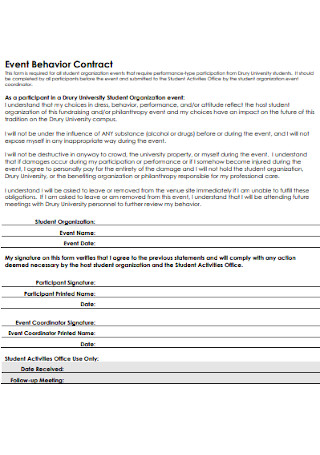
Event Behavior Contract
download now -
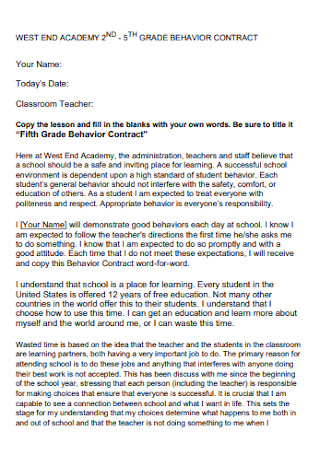
Sample Grade Behavior Contract
download now -
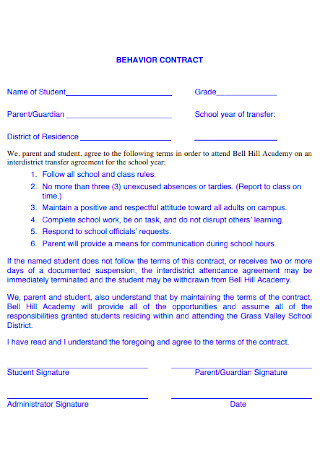
Academic Behavior Contract
download now -
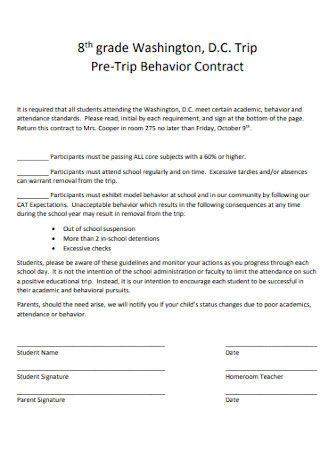
Pre-Trip Behavior Contract
download now -
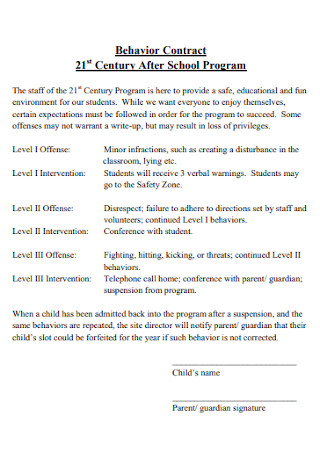
School Program Behavior Contract
download now -
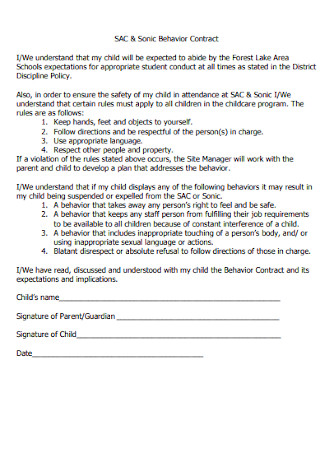
Sample Education Behavior Contract
download now -
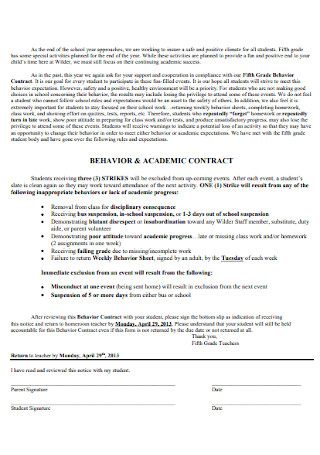
Behavior and Academic Contract
download now -
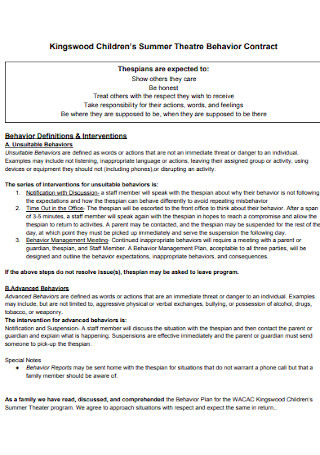
Children Behavior Contract
download now -
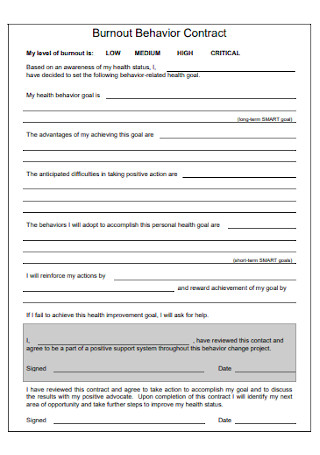
Burnout Behavior Contract
download now -
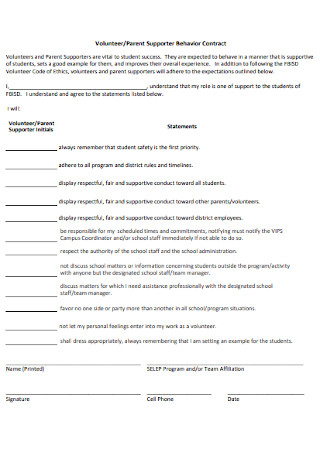
Parent Supporter Behavior Contract
download now -
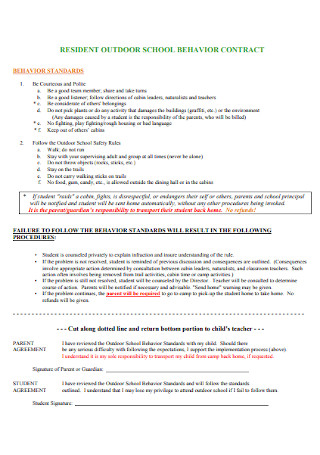
Resident Outdoor School Behavior Contract
download now -
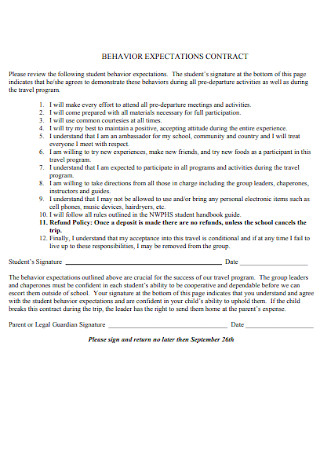
Behavior Expectations Contract
download now -
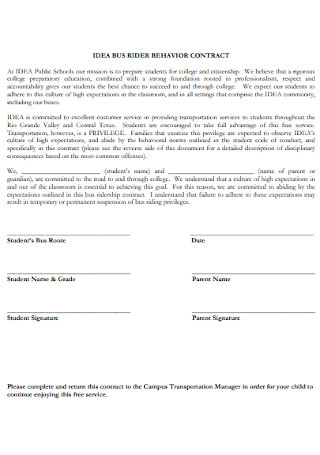
Bus Rider Behavior Contract
download now -
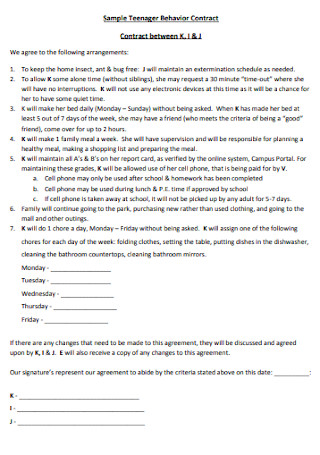
Sample Teenager Behavior Contract
download now -
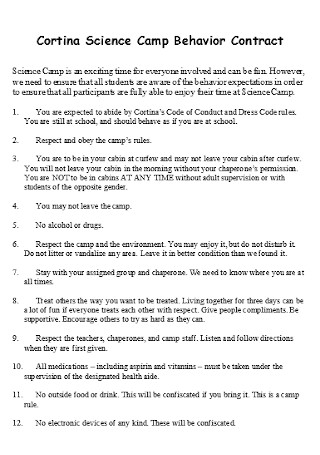
Science Camp Behavior Contract
download now -
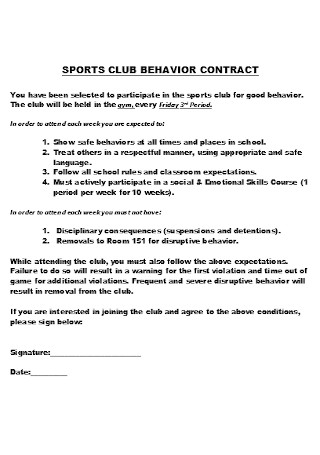
Sports Club Behavior Contract
download now -
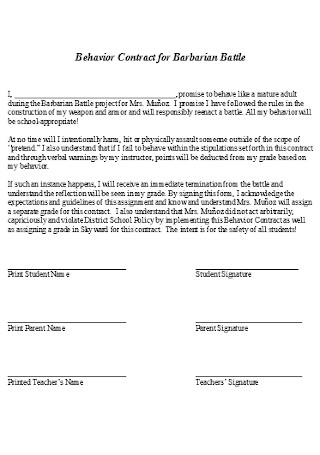
Behavior Contract for Barbarian Battle
download now -
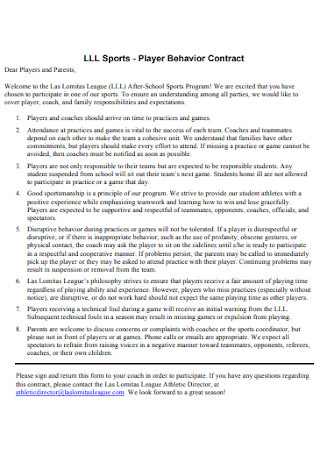
Player Behavior Contract
download now -
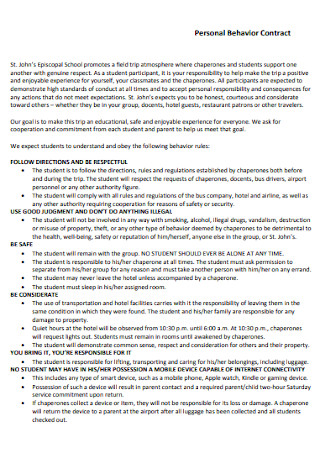
Personal Behavior Contract
download now -
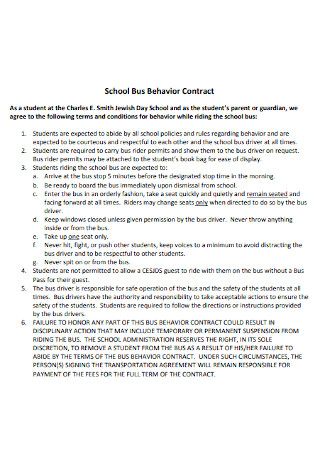
School Bus Behavior Contract
download now
FREE Behavior Contract s to Download
50+ Sample Behavior Contract Templates
Behavior Contract: What Is It?
What Benefits Fall Under a Behavior Contract?
What to Expect Inside a Behavior Contract
How Do You Make a Standard Behavior Contract?
FAQs
What are the other names for a behavior contract?
What is a behavior change contract?
Are behavior contracts effective?
Behavior Contract: What Is It?
As students in kindergarten, elementary, middle school, high school, and college are all in the process of growing and learning, the same goes for their manners. Indeed, schools commonly encourage their pupils to study hard for a brighter future. However, conduct also affects one’s future in terms of how you shape up as a whole person. What better way to practice good habits and conduct than to practice it in school too? During the weekdays, students spend most of their time inside classrooms anyway. On that note, a behavior contract is planned. This marks as a written agreement form between the child, the parent, the teacher, and the school. This said contract aims to enhance student behavior, such as giving consequences to bad behavior and offering rewards for being good. With a strategic plan observed in this document, the chances for it to be effective are high.
According to Educationdata.org, around 56.6 million pupils enrolled in the primary and secondary school in the US back in 2019.
Mental Health First Aid’s 2019 survey adds that around 46.4% of adults in the US have experienced mental illness.
Meanwhile, a 2011 survey reports that many Americans suffer from stress, in which approximately 44% agreed that their stress levels grew over five years.
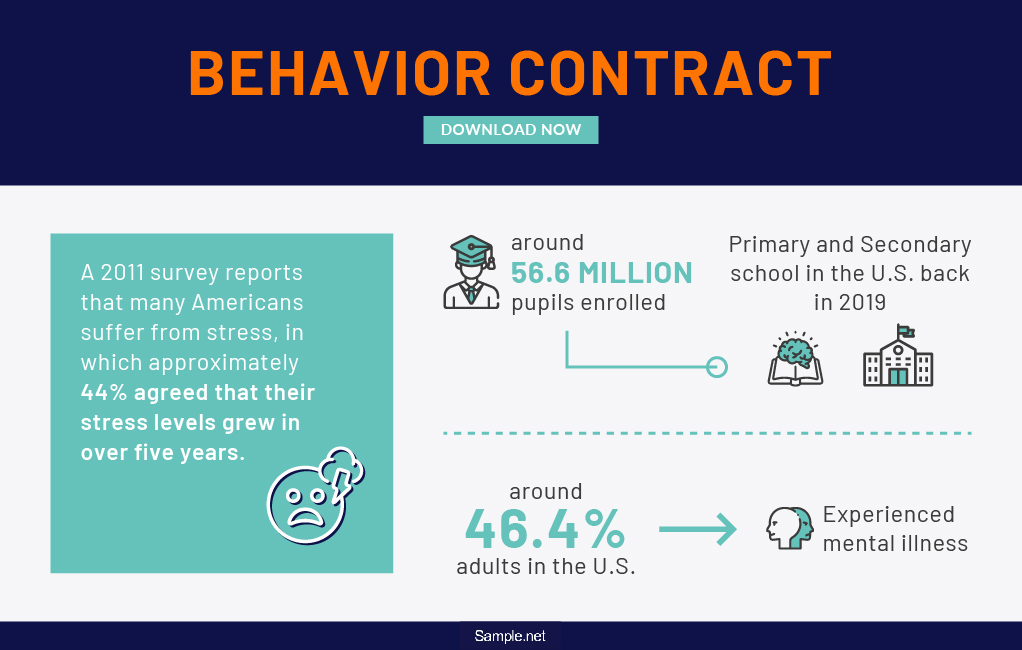
How Do Behavior Contracts Work?
You already know that a behavior contract promotes positive behavior for involving a management plan. But how does it work? Contracts specify what every expected behavior to show is while in the classroom. It does not have to be in the school only since this agreement can work for working adults as well, in case they need behavior modification. More so, what consequences follow when the subject does not meet the criteria will be identified. For example, someone who talks too much in class may receive a punishment of writing an extended essay about not committing such a practice again. On the other hand, exciting rewards can follow in adhering to the stipulations, like receiving good grades. Another possible outcome is how a child can start to enhance his or her skills in self-monitoring after learning what is right and wrong repeatedly. Hence, expect the overall plan made in collaboration with teachers, school organizations, and parents to benefit pupils.
What Benefits Fall Under a Behavior Contract?
Do schools benefit from behavior contracts? You should know that in 2019 alone, Education Data recorded that 56.6 million students enrolled in the US elementary and high school division. With that massive number of students, imagine the challenge involved to keep the school peaceful and orderly. Therefore, a behavior contract must take place among students for peace and order. Beneficial effects even come from these documents. What are they? Here are the benefits of a behavior contract:
What to Expect Inside a Behavior Contract
A lot of behavior contract examples are available online and which is the real deal might confuse you. Just know that different examples exist, so the content will not always be the same. Something you should focus on at the moment is to recognize what common elements are evident inside behavior contracts. Without further ado, here are certain examples you can find:
Defined Behavior Expectations
It is no stranger that behavior contracts will have this section since the contract itself is an outline of each behavior expectation. Clarity is a must, or the subjects might have a hard time adjusting to the stipulations. Furthermore, you uncover your subjects thoroughly since a different age, situation, or mentality can affect behavior management operations. Maybe you assumed that someone with ADHD would adjust smoothly to the expectations given to a regular student. Careful planning and management shall make this work.
Positive Consequences
When subjects obey the desired behaviors, what do they get? You enumerate that through positive consequences—good grades, freebies, award certificates—you name it. Exciting incentives often encourage subjects to commit to the expectations so they could receive such rewards. However, teachers or professionals should still reiterate that the program is not mainly about the prize but the lesson behind it.
Negative Consequences
For the opposite side of consequences, you prepare the negative consequences or punishments. The things stated here will commence whenever subjects fail in observing any behavior expectation. Examples include lesser time for recess, low grades, suspension, and many more. Seeing pupils suffer is not the root of giving a punishment but rather warning them about not doing the inappropriate behaviors once again.
Solutions and Maintenance Plans
Different reasons apply to certain actions. An example is when a pupil answers back to the teacher. Perhaps, such impoliteness was caused by stress. Additionally, the American Psychological Association (APA) reported that most Americans, around 44%, had increasing stress levels for five years before 2011. Also, one out of three children had symptoms related to stress from that same research survey. Moving on, the teacher gives solutions after the student faces the consequences. A maintenance plan comes next on how that pupil can maintain that desired behavior.
How Do You Make a Standard Behavior Contract?
Aside from knowing what a behavior contract is and how effective it can work, the main concern is how to create it in the first place. Never fret since it will be easy after recognizing the tips in crafting one. There are many health behavior contract examples you can find from our collection anyway. Such templates are just a click away until you can download and tweak the content. After downloading a behavior contract template, you follow these steps next:
Step 1: Specify the Contract’s Purpose
Any behavior contract serves a different purpose. With that, the need to specify cannot be forgotten. First and foremost, to which application is the behavior management plan for? Maybe the document aims to set the appropriate behavior while in a field trip, the workplace, or a classroom. You state where to apply the rules then. If you want a simple approach in providing every significant purpose to the sheet, then you simply prepare a checklist. That way, you will know if everything listed is evident in the contract or not.
Step 2: Identify Every Party
Who is part of this behavior contract, and who created it? Such detail is worth incorporating into the document itself. You mention the basic information from the name, age, address, contact info, and the like. This section helps in profiling your subjects properly, too, like if this contract serves primarily on any student, child, teenager, adult, or maybe someone with ADHD. The point here is you do not leave out anyone involved in the agreement.
Step 3: Define the Behavior Expectations
To give behavior expectations got mentioned in the behavior contract benefits. Therefore, you define it properly for it to serve right. The usual approach in making this contract is how you list down every expected behavior to establish. The same goes for what behaviors are banned from the plan. On that note, subjects become well aware of the criteria until they could no longer forget every desired behavior to fulfill.
Step 4: Set the Terms and Consequences
Now for the real deal, you include the regulations and expected consequences. Setting some rules will keep things in order rather than giving too much freedom to the subjects. Never forget to mention that any breach of contract might happen, so how you deal with it is part of the plan. Also, the behavior contract consequences will either be positive or negative. When the subject adhered to the rule, you give positive consequences through a reward. Meanwhile, negative consequences refer to punishment. Albeit terms turn strict, putting adjustments is possible. For example, students in kindergarten should never observe behavior expectations rigidly similar to that of those in high school since there lies a difference in the age gap.
Step 5: Require a Signature
Lastly, have you reviewed everything from top to bottom? Maybe there are still some points to address in the contract that is currently missing in the template. After evaluating its content, you end the contract with a signature line. What is its purpose? This section is responsible for making the deal more valid, whether it is a non-binding or binding contract. When subjects put their signatures, it signifies that they read, understood, and agreed to the contract’s details. Then, sticking to its terms shall follow.
FAQs
What are the other names for a behavior contract?
The behavior contract is associated with a performance contract or a contingency contract. Such names are similar since those can all implement proper behavior. Same with behavioral agreements, positive and negative reinforcements are part of the picture.
What is a behavior change contract?
Behavior change contracts are similar to a standard behavior contract wherein it plans to promote constructive-reinforcement interventions. You expect experts to participate in helping subjects change their behavior for the better. Likewise, such contracts contain detailed expectations for subjects to observe.
Are behavior contracts effective?
Back to how the behavior contract works, as stated above, it is a very effective instrument for various reasons and many benefits to boot. Yet, its assurance depends on how well-planned the document is. Adapting strategies and plans will bring a bigger chance to keep the outcome effective.
At the end of the day, behavior is modified anytime, so rating someone’s behavior as bad or good is not a forever basis. However, not putting any effort into helping someone improve in terms of character and conduct is discouraged. It is only right for those who need guidance to receive a behavior intervention plan until they grow as well-mannered individuals. How a child got raised early can be brought into adulthood anyway. Also, Skinner’s operant conditioning already made you understand how behavior management works. Putting his theory into action is an excellent idea, and you plan it inside a behavior contract.
